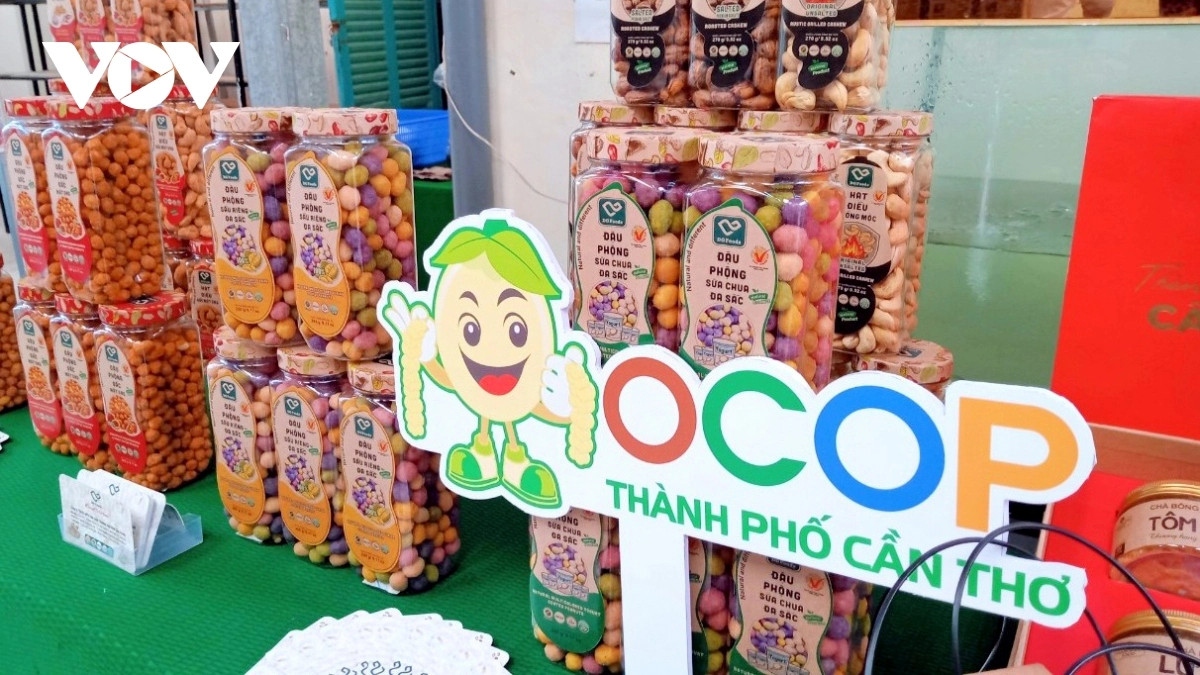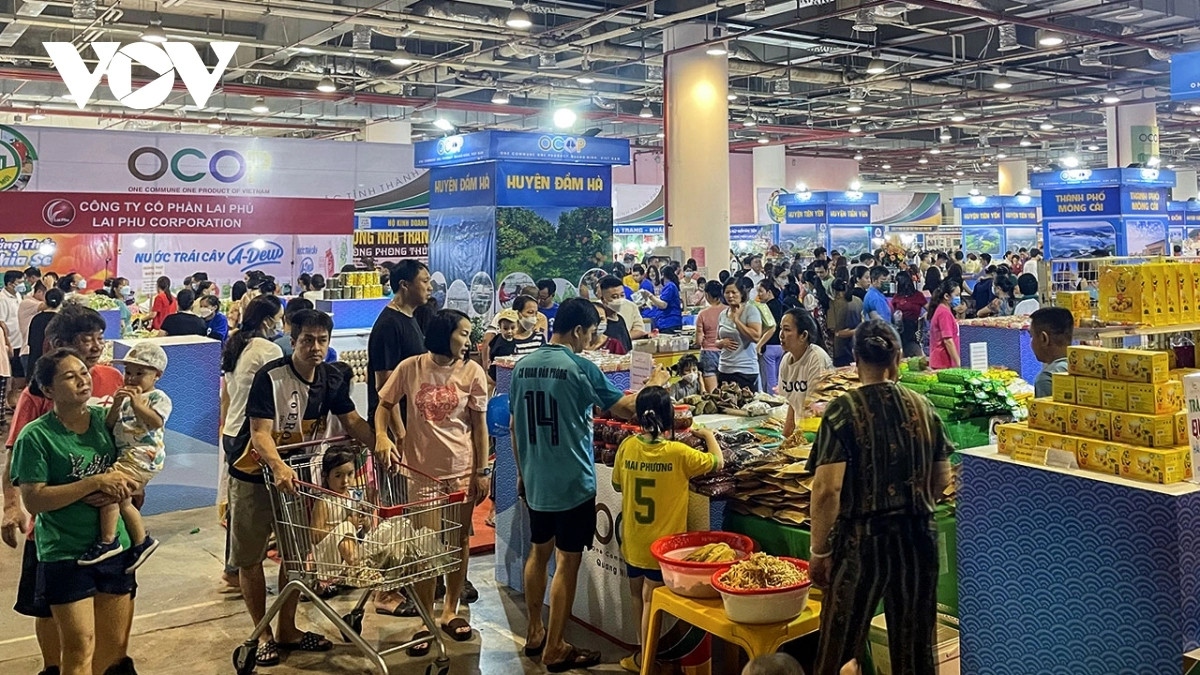Báo Bình Dương điện tử - www.baobinhduong.vn
Tổng Biên tập: LÊ MINH TÙNG
Phó Tổng Biên tập: HUỲNH MINH DÂN - NGUYỄN QUỐC LIÊM
One Commune, One Product (OCOP) products have become more familiar to Vietnamese people over recent years, but for these products to reach out to global consumers, OCOP businesses need support from the State, suppliers, and e-commerce platforms.
Diverse forms of access for OCOP products

Nearly 11,000 OCOP products have been rated three star upward
So far, Vietnam has evaluated and granted three-star certifications to nearly 11,000 OCOP products, of which some have been exported abroad and gone on to win consumer trust. This shows businesses’ efforts in improving product quality and boosting trade promotion through supermarket chains and e-commerce platforms.
Shan Tuyet tea, a famous Vietnamese tea and a specialty of Yen Bai province, is now available on e-commerce platforms as opposed to being sold through traditional distribution channels. Dao Duc Hien, director of the Suoi Giang Ecotourism Cooperative in Yen Bai, says all provincial agencies take this product for both use and to give as special gifts to foreign guests during formal receptions. Beyond the identity of being a local product, the tea is also used by Government leaders in national tea ceremonies.
“Shan Tuyet tea is also available at five-star hotels of major global brands, as well as at airports as a form of on-site export so that foreign visitors can access and buy it. In addition, it is also known globally as it is offered on international e-commerce platforms such as Alibaba or Amazon,” states Hieu.
In recent years, the e-commerce platform Postmart.vn of the Vietnam Post Corporation (VNPost) has become an official channel which helps to popularise and sell OCOP products.
“Postmart provides technical training for farmers to easily bring OCOP products to the e-commerce platform. It also helps consumers track the traceability and sell the products at the best prices,” says Nguyen The Anh, director in charge of sales and marketing at Postmart.vn
Support policies needed for OCOP businesses

OCOP products are distributed through different channels, inclulding supermarket chains or e-commerce platforms
OCOP products have been confirmed locally in terms of quality, food hygiene, and safety standards, as well as increasingly beautiful packaging designs to meet consumer demand for daily use and as gifts during holidays or receptions held for foreign guests. However, it is necessary to identify appropriate trade promotion channels as a means of further increasing the value of OCOP products.
Dang Quy Nhan, deputy head of OCOP Management Department at the Ministry of Agriculture and Rural Development, points out that OCOP products are mainly produced by small and medium-sized businesses which have limited production capacity. Besides poor competiveness, OCOP makers still have difficulty accessing support policies to boost production and meet large orders.
“In order for OCOP products to reach out to large markets, OCOP businesses need direct support policies in terms of information, training, capacity building, especially innovation, The support will help businesses to create unique quality products that both represent the indigenous community and meet consumer tastes,” suggests Nhan.
More importantly, according to the official, e-commerce platforms, and suppliers need to accompany state management units to support OCOP businesses through training and marketing channels as a way of introducing these products to a wide range of potential customers. When consumers themselves understand the value of the product, they will seek to help promote it wider and faster to domestic and international markets.
OCOP products can only develop if they receive added value and find the right market. By better positioning OCOP products with scientific and technological solutions, or developing an ecosystem with designs and packaging that meet export standards, the items can be considered as fully qualified to reach the global market. At this point, they are simply not only products, but they truly become cultural and culinary ambassadors of Vietnam.
VOV